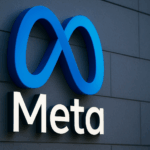The intersection of traditional finance and cryptocurrency is witnessing a transformative development. When combined with the convenience of established digital platforms, cryptocurrencies offer innovative pathways for trading and investment. Kraken, a leading cryptocurrency exchange, is employing a Crypto as a Service (CaaS) model to integrate with existing financial infrastructures and enable firms to engage in crypto trading seamlessly. By forming significant partnerships, such as with equities broker Alpaca, the company is working towards making digital assets as easily accessible as traditional financial products.
Brett McLain, who heads payments and blockchain at Kraken, shared that the partnership with Alpaca opens Kraken’s extensive crypto infrastructure to over 200 enterprises that are already integrated with Alpaca. This contrasts with previous ambitions in the sector, which were often inhibited by technological and regulatory limitations. Compared to other initiatives, Kraken aims to provide comprehensive access to trading, yield generation, and asset custody, potentially positioning itself as a key player in easing entry into crypto markets.
How Does CaaS Fit Into Existing Financial Models?
CaaS is designed as a modular and flexible business model suitable for integration into present financial ecosystems. By serving as a plug-and-play crypto backend, it alleviates the need for companies to develop their own infrastructure. This model allows clients to rely on Kraken’s regulatory compliance and liquidity network, thereby reducing complexity.
McLain emphasized the benefits of access to Kraken’s wide range of crypto assets, noting that they currently support over 400 different assets and various blockchains. For organizations navigating regulatory barriers, Kraken’s compliance solutions represent a steady alternative, allowing them to engage with blockchain-based financial solutions under a stable framework.
Will Expanding Internationally Overcome Regulatory Challenges?
Kraken’s international ambitions include extending its services to Canada, the European Union, and the United Kingdom. The regulatory landscape, particularly with new frameworks like MICA in Europe, poses challenges that Kraken aims to address by allowing enterprises to leverage its licenses for offering crypto services. This strategic move could be pivotal for European fintechs and brokers keen on entering the crypto space without navigating extensive regulatory hurdles alone.
Additionally, Kraken incorporates essential compliance processes like KYC and KYB, crucial for operations in regulated markets. This integrated approach enhances onboarding efficiency for partners while aligning with broader trends in embedded financial services.
Kraken is also exploring the potential of tokenizing real-world assets, including tokenized stocks. The ability to convert tangible objects into digital tokens could significantly increase market liquidity by making such assets globally accessible. This initiative not only taps into new markets but also offers users diversified investment options beyond traditional asset categories.
Overall, Kraken views itself as an enabler of the next wave of financial services, supporting a diverse range of offerings from traditional equities to innovative crypto and compliance solutions. By securing partnerships and navigating regulations, Kraken is strategically positioning itself as a comprehensive fintech service provider.










